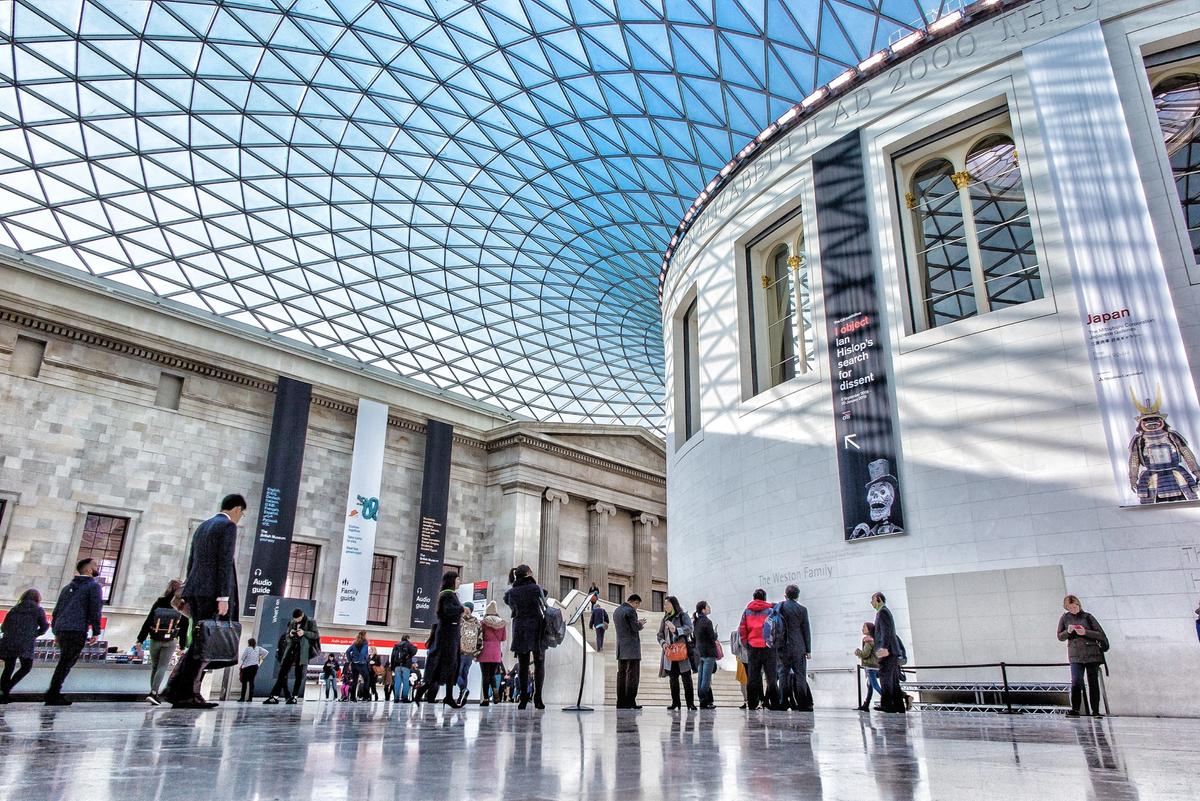The UK government has set out plans allowing museums and galleries in England to reopen from 4 July as part of an easing of lockdown measures. The move was welcomed by the directors of six national museums, including Tate and the National Gallery, who issued a joint statement.
“We welcome the Prime Minister’s announcement to allow the safe reopening of our galleries to the public this summer. We will now work closely with government, trade unions and supporters to see how and when we can open our doors again in a financially sustainable manner, for the long term,” say the directors (Maria Balshaw, Tate; Ian Blatchford, Science Museum Group; Mike Dixon, Natural History Museum; Gabriele Finaldi, National Gallery; Hartwig Fischer, British Museum; Tristram Hunt, Victoria and Albert Museum).
Museums resonate especially now, taking on “a role of particular significance as we reflect on current debates around crucial issues including racial equality, social justice, and climate change”, they add.
However, none of the national museums have confirmed reopening dates so far though most are expected to announce their post-lockdown relaunch plans in the next two weeks. “We are delighted the government is saying museums can reopen but we don’t have specific dates,” says a spokeswoman for the British Museum.
The precarious predicament of museums and galleries remains a concern in the wake of the coronavirus crisis. “The lockdown closures have hit museums’ finances incredibly hard; some may never reopen and for those who can, social distancing measures will drastically limit visitor numbers and associated income that make them economically viable,” says Jenny Waldman, director of the Art Fund charity. The two-metre social distancing rule will be abandoned from 4 July.
Alistair Brown, policy manager at UK Museums Association, tweeted: “Great that museums will be able to open again soon. But with limited visitor numbers, no international tourism and still no long-term rescue package, huge problems remain for the sector.”
Other institutions in the capital and countrywide are nonetheless starting to firm up plans.
The Whitechapel Gallery in London aims to open its doors early July with five exhibitions including Radical Figures: Painting in the New Millennium and In the Eye of Bambi (La Caixa Collection), which will be extended until the end of August.
“Galleries are the perfect spaces in this situation as people do not have to congregate and can move freely around the works,” says Iwona Blazwick, the Whitechapel Gallery's director, adding that appropriate safety and hygiene measures will be in place. “The staff will wear face visors made by the technical team at Goldsmiths College,” she adds, stressing that “there is both an ethical imperative to open in our duty to artists and the public as well as a financial one.”
Serpentine Galleries in Kensington Gardens will have a phased relaunch from 4 August with the Cao Fei: Blueprints exhibition at the Serpentine Gallery due to open first, a spokeswoman says.
The Hepworth Wakefield in West Yorkshire plans to open from 1 August. “The Bill Brandt/Henry Moore exhibition has been extended until 1 November, so people can pre-book their tickets to see that exhibition from 1 August,” says a spokeswoman.
Pallant House Gallery in Chichester, which focuses on British art from 1900 to today, will reopen in August, providing government advice does not change in the interim, says its director Simon Martin.
“There’s a lot to get in place with the new systems, rehanging collections, and maintenance of buildings, but also the bringing back of staff and volunteers; an issue for independent museums and charities is that a lot of elderly volunteers are in the shielding category, and so we need to recruit new volunteers including people for a young persons’ programme,” he says.
The National Army Museum in Chelsea, London, is planning to reopen on 7 July.
Meanwhile, the Royal Academy of Arts in London, which receives no government subsidy, is currently working on its reopening plans. “This is dependent on government advice and we will announce details in due course,” a spokeswoman says.
UPDATE (24 June): Compton Verney Art Gallery and Park in Warwickshire will reopen on 7 July; the exhibition Cranach: Artist & Innovator will be extended until 3 January 2021.


